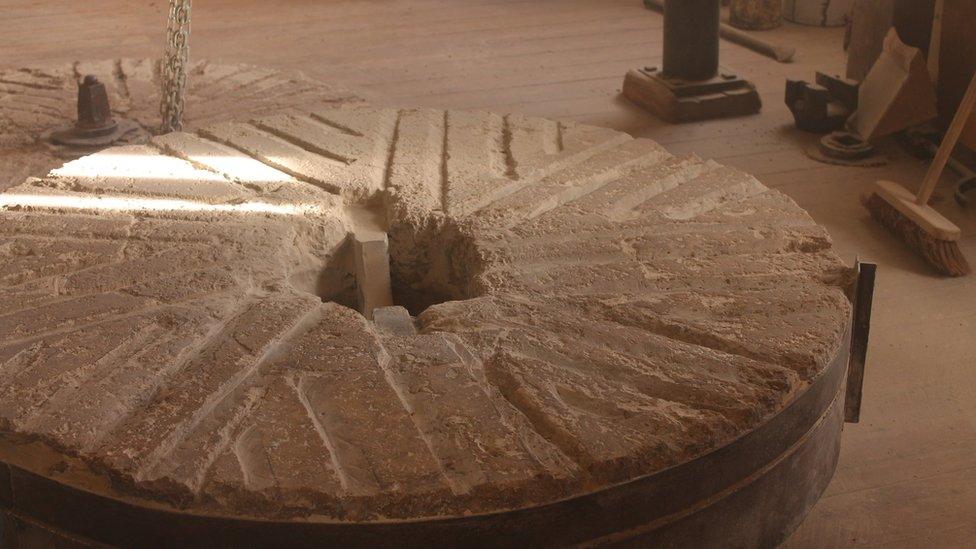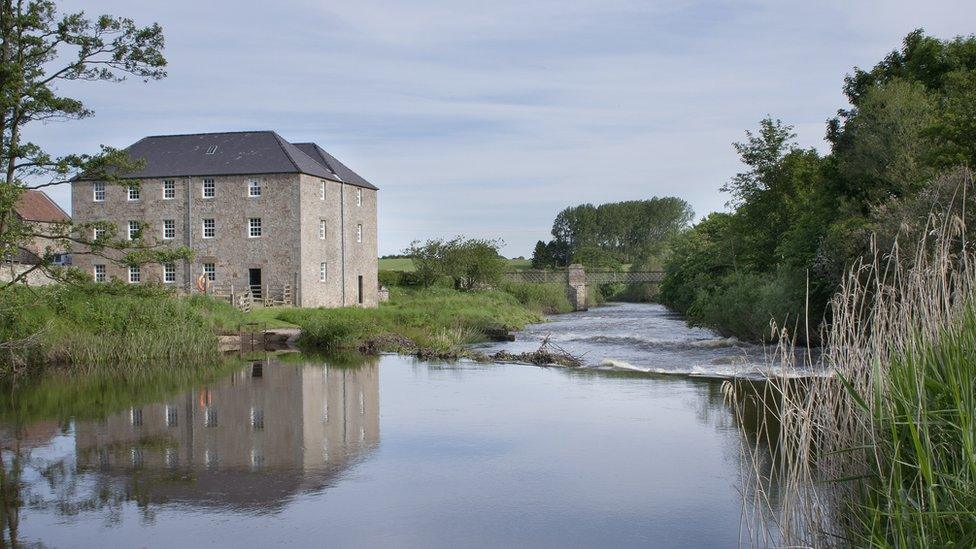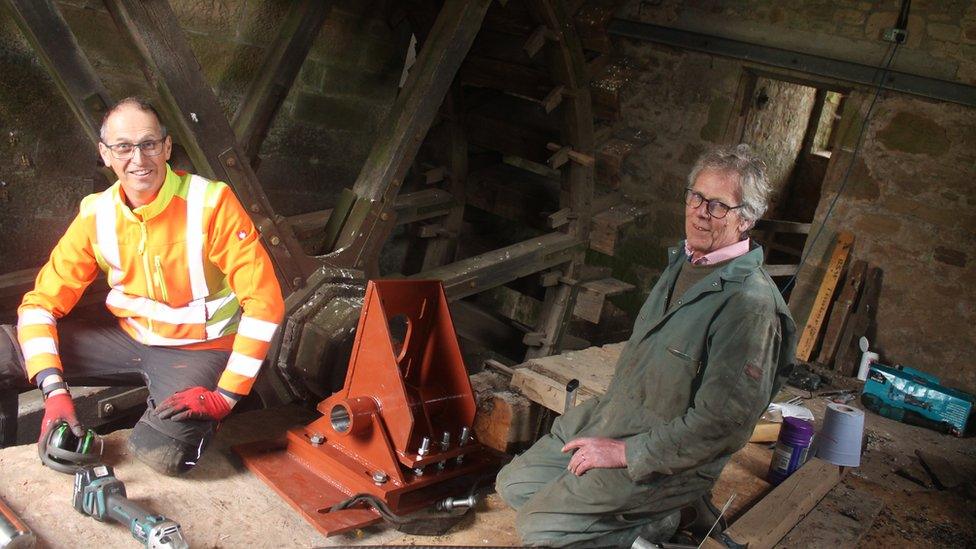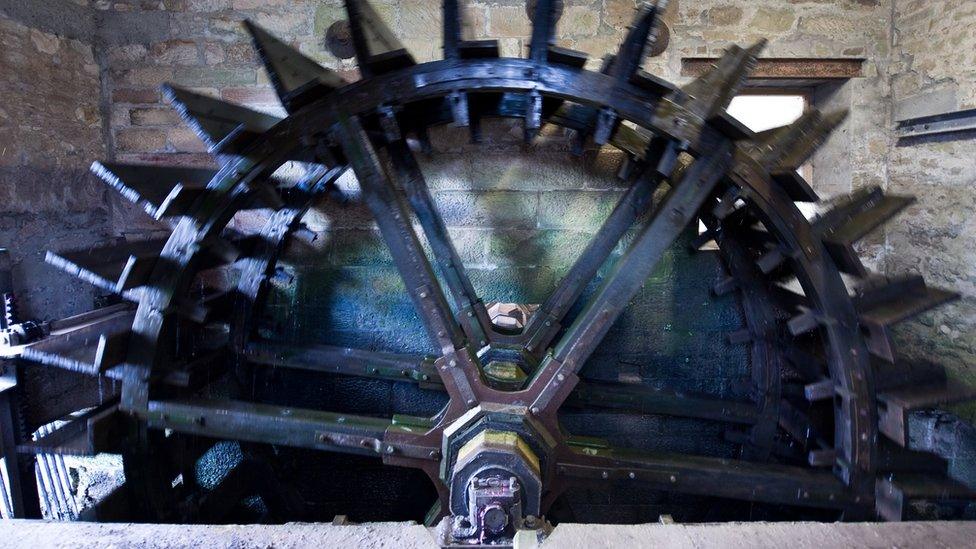Heatherslaw Corn Mill makes 'garden' millstone appeal
- Published

Millstones are made from a type of flint found in France and Belgium
A flour mill in Northumberland is on the hunt for a "not so easy to find" replacement millstone.
The waterwheel is once again turning at Heatherslaw Corn Mill, near Etal, after a six month gap while it was repaired.
However, the working heritage museum faces a new challenge - the top stone which grinds the grain has worn down and is reaching the end of its life.
Such stones are rare and an appeal has gone out to anyone who may have one in their garden they want rid of.
Millstones are made from French buhrstone, a flint found in France and Belgium, and as mills came out of use due to modern milling techniques most ended up being broken up as road fill.

The mill produces flour and also operates as a visitor attraction
Local engineer, Matthew Rawlings, said: "You also see old millstones at entrances to villages, in people's gardens or on fancy patios as drinks tables.
"So we're looking to tap into those sources.
"They go for inordinate amounts of money and the mill hasn't got that, we're a charitable trust, so if anyone wants to get rid of one ... even if it's in a parlous state, we could work around that."
The stone needed is 4ft (1.2m) in diameter and would weigh about a ton.
He added: "We could arrange for collection, we wouldn't expect it to be popped in the post."

Matthew Rawlings (right) and Paul Turnbull also worked on repairs to the waterwheel
Mr Rawlings was one of two local engineers called upon in November when the machinery started making unusual noises.
It transpired the main waterwheel bearing on the river side had failed because the large piece of timber supporting it had rotted away and, as with the millstone, sourcing a replacement was a challenge.
He said: "To replace like-for-like would have required us sourcing a trunk measuring 24 feet in length and two feet square - a sizeable tree.
"In addition, a part of the mill building would have had to be dismantled to allow new timber to be manoeuvred into place."

While the waterwheel was out of action the mill relied on electricity
Instead he designed a fabricated structure using a natural polymer formulated for use in quarrying machinery in South Africa's diamond mines.
He also devised an electric machine to drive the millstones so flour could be produced while the waterwheel was out of action.

Follow BBC North East & Cumbria on Twitter, external, Facebook, external and Instagram, external. Send your story ideas to northeastandcumbria@bbc.co.uk, external.
Related topics
- Published3 May 2020
